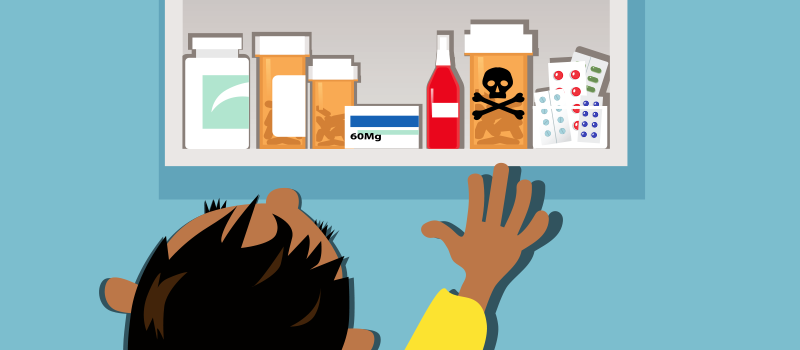What’s the Buzz
The Bee Healthy Blog
Is Metformin Bad for Your Kidneys?

Key Takeaways
-
Metformin is not known to be harmful to the kidneys and other body organs. However, renal impairment, liver disease, and heart failure can increase the risk of developing lactic acidosis with metformin use.
-
While metformin should not be used in people with severely reduced kidney function, depending on the level of kidney damage, your doctor may deem metformin to be beneficial for you.
The generic drug metformin (brand names Glucophage, Fortamet, and others) is the first go-to medication prescribed to treat patients with type 2 diabetes mellitus.
While metformin is generally well-tolerated and effective at managing blood sugar levels, it may not be safe for everyone. Your doctor may avoid prescribing metformin if you have kidney disease. Please continue reading to find out if metformin is bad for your kidneys.
Is metformin hard on the liver or kidneys?
Metformin is not known to be harmful to the kidneys and other body organs. It does not cause acute kidney injury or liver damage. However, certain existing health conditions, such as renal impairment, liver disease, and heart failure, can increase the risk of developing lactic acidosis with metformin use.
Lactic acidosis can happen when metformin is not appropriately cleared from the body, leading to a high level of metformin in the bloodstream. Therefore, if you have reduced kidney function or liver damage, your body doesn’t clear metformin as well as it should.
Can people with reduced kidney function or kidney disease take metformin?
Whether a person with kidney impairment can take metformin depends on the severity of their kidney disease. Metformin should not be used in people with severely reduced kidney function, but it may still be acceptable for those with mild to moderate kidney disease.
Depending on your kidney function, your doctor may deem metformin to be beneficial for you. Learn more about your risk for kidney disease.
The U.S. Food and Drug Administration (FDA) recommends that healthcare providers use the estimated glomerular filtration rate (eGFR) as a measure of kidney function to determine whether a person is a good candidate to receive metformin rather than using serum creatinine level, another blood test measuring kidney function.
This is because eGFR provides a better estimate of kidney function than serum creatinine levels by taking into account the patient’s age, gender, race, and body weight.
Before starting metformin or metformin-containing medicines, your healthcare professional will obtain an eGFR. Metformin is contraindicated in people with end-stage renal disease (eGFR below 15) or severe CKD (eGFR below 30). It is also not recommended for people with an eGFR between 30-45 mL/min/1.73 m2. They may prescribe metformin if your eGFR is above 45.
Your provider will recheck an eGFR at least annually if you are taking metformin, more frequently if you are an older adult. If your eGFR falls below 45 mL/minute/1.73 m2 after starting metformin, they will reevaluate the risks versus benefits of continuing treatment with this medication. If your eGFR falls below 30 mL/min/1.73 m2, you will need to stop taking metformin. Renal function monitoring is also routinely performed by the physician since diabetes frequently affects the kidneys.
What organ is affected by metformin?
The liver, intestines, and kidneys are the main target organs with metformin therapy. In patients with type 2 diabetes, metformin acts on an enzyme called AMP-activated protein kinase and lowers glucose production in the liver.
In addition, it reduces the amount of glucose absorbed from food in the intestines. These are the two ways in which metformin helps to control blood glucose levels. High blood sugar levels are linked to an increased risk of cardiovascular disease and other chronic health conditions.
Metformin is eliminated from the body by the kidneys. In people with impaired kidney function, metformin can accumulate in the body. High plasma levels of metformin are associated with an increased risk of lactic acidosis. This is a type of metabolic acidosis and is a potentially life-threatening condition in which there is too much lactic acid in the blood and an acidic blood pH.
What are the dangers of taking metformin?
Metformin is a widely used first-choice medication for treating diabetes, specifically type-2 diabetes. However, it carries certain risks. Here are some of the dangers of taking metformin.
Side effects
Common side effects of metformin include stomach pain, bloating, gas, indigestion, heartburn, diarrhea, constipation, metallic or unpleasant taste in the mouth, headache, flushed skin, muscle pain, and nail changes. Tell your doctor if these side effects are severe or do not go away after your body has had time to adjust to metformin.
Metformin associated lactic acidosis
As mentioned, lactic acidosis is a rare but serious complication of taking metformin. It is caused by an increased lactate concentration in the body that can occur in metformin users with significantly reduced renal function. (As mentioned, metformin is removed from the body by the kidneys and can accumulate in people with renal impairment). Other risk factors for lactic acidosis include heart failure, liver disease, and alcoholism.
Your doctor will monitor kidney function tests regularly while you are taking metformin, especially if you are an older adult. You may need to temporarily stop taking metformin before imaging procedures requiring contrast administration and surgery.
Metformin treatment may need to be stopped if you develop dehydration, acute renal failure, hypoxemia (low oxygen levels in your blood), or sepsis (widespread infection).
Lactic acidosis is a medical emergency that must be treated in a hospital. Mild or nonfatal lactic acidosis can cause nonspecific symptoms.
Tell your doctor without delay if you develop symptoms such as malaise, drowsiness, muscle aches, difficulty breathing, and abdominal pain. Other symptoms can include low blood pressure, low body temperature, and slow heart rate.
Drug interactions
The use of another over-the-counter or prescribed medication with metformin-containing medicines can affect kidney function. This can interfere with the elimination of metformin from the body and put you at risk of lactic acidosis. Give your doctor and pharmacist a complete list of all your other drugs to prevent potentially dangerous drug interactions. Learn more about metformin drug interactions.
Hypoglycemia
Hypoglycemia (low blood glucose) is not a common complication in patients taking metformin alone. However, it can occur in situations where caloric intake is reduced, or intense exercise is not compensated by sufficient caloric intake.
Hypoglycemia can also occur with concomitant use of other glucose-lowering drugs, including insulin. Risk factors for hypoglycemia include older age, debilitated health status, malnutrition, alcohol intoxication, and hormonal disturbances (adrenal insufficiency or pituitary insufficiency).
Vitamin B12 deficiency
Controlled clinical trials have shown that taking metformin can lead to a decrease in serum vitamin B12 levels. This deficiency is usually not severe enough to cause symptoms and can be easily corrected with vitamin B12 supplementation. Your doctor may measure vitamin B12 annually or at 2-3 year intervals. Check out our blog to learn more about metformin and B12 deficiency.
Secondary failure
Oral antidiabetic drugs such as metformin can become less effective over time in lowering blood glucose levels. This can be due to a progression of diabetes and/or reduced responsiveness to metformin. It is called secondary failure. (Primary failure refers to a lack of response to metformin during initial treatment).
If you stop responding to metformin alone, your healthcare provider may prescribe alternative treatments such as combined therapy with metformin and a sulfonylurea. If you stop responding to combined oral anti-diabetic therapy, you may need to start insulin therapy.
Is metformin still the first-line treatment for type-2 diabetes?
Metformin continues to be a first-line treatment for type-2 diabetes. With over 14 million prescriptions written each year in the U.S., metformin is one of the most commonly prescribed oral diabetes medications.
When someone is diagnosed with type-2 diabetes, metformin is still the first go-to agent prescribed to diabetic patients, but this medication may not be safe for everyone. With many new diabetes medications being approved by the FDA in recent years, healthcare providers have a lot more options to treat type-2 diabetes.
While metformin does not cause renal dysfunction, people with severely reduced kidney function can’t clear it out of their bodies as efficiently as healthy people. When the kidneys cannot clear metformin out of the body, metformin can accumulate in the bloodstream, leading to a higher risk of adverse events, especially lactic acidosis.
That’s why people with severe CKD should steer clear of metformin. With many diabetes medications being approved in recent years, those with more advanced CKD would benefit from one of these metformin alternatives.
Save on Your Diabetes Medication with BuzzRx!
Manage your diabetes medication costs with BuzzRx coupons. Here are direct links to substantial savings for each medication:
Remember, these coupons are widely accepted at over 60,000 pharmacies, including major chains like CVS, Walgreens, and Rite Aid. Just present your coupon at the pharmacy to ensure you're getting the best possible price.
References:












SOCIAL